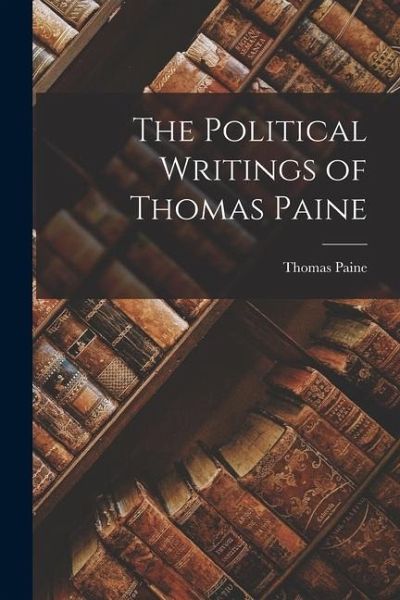
The Political Writings of Thomas Paine
Versandkostenfrei!
Versandfertig in über 4 Wochen
24,99 €
inkl. MwSt.
Weitere Ausgaben:

PAYBACK Punkte
12 °P sammeln!
The Political Writings of Thomas Paine


Rechnungen
Bestellstatus
Retourenschein
Storno